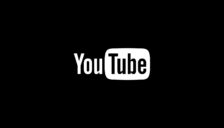Jason Koebler, writing for 404 Media:
Thursday evening, the Austin, Texas City Council was set to consider and pass a resolution calling on Google to bargain with a union of YouTube Music workers who are based in the city. While one of the workers was speaking to thank the council, Google laid all of the workers off: “To be supported by the city of Austin and also our allies in the labor community gives us the motivation to keep this fight going,” Jack Benedict, a member of the Alphabet Workers Union was saying to the council.
One of his colleagues, Katie Marner, walked up to the pulpit: “Not to interrupt, but they just laid us all off,” she says. “They just laid us all off. Our jobs are ended today. Effective immediately.” A bell rings. “I’m sorry, your time has expired, but we’ll follow up on this,” Austin mayor Kirk Preston Watson says.



